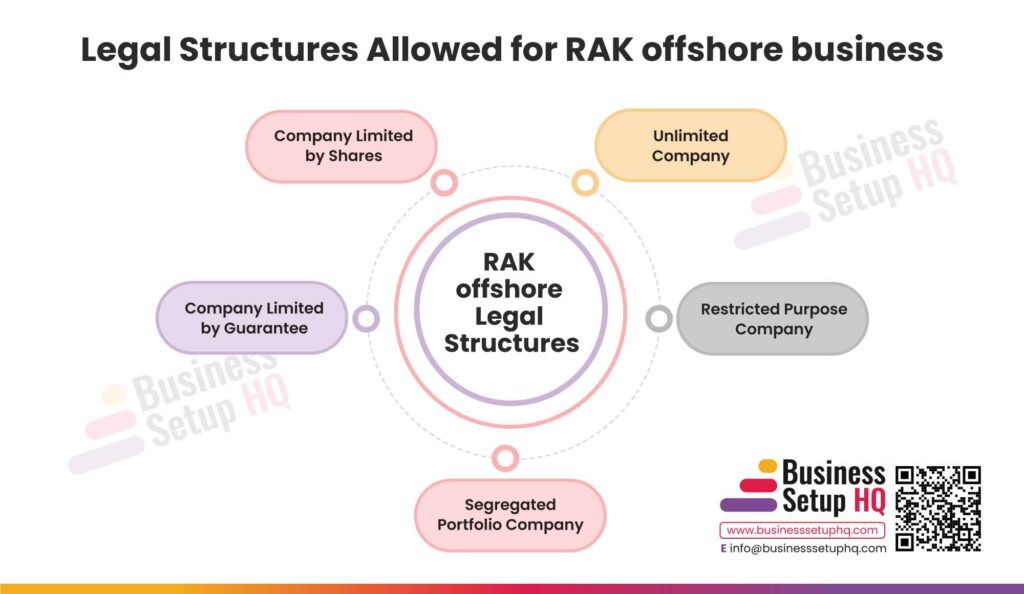Browsing the World of International Organization: Insights on Offshore Company Formation
Offshore Company Formation presents a strategic opportunity for global organization operations. It offers remarkable advantages, such as tax optimization and improved privacy. Nonetheless, the process is not without its obstacles. Recognizing the complexities of governing needs and different jurisdictions is important. As services think about these alternatives, the steps involved can considerably affect their long-lasting success. What are the essential elements that can cause reliable offshore management?
Understanding Offshore Firms: Meaning and Function
Offshore firms have become a prime focus in international business conversations because of their distinct lawful and economic structures. These entities are developed in territories beyond the proprietor's country of home, commonly with favorable governing settings. Normally, overseas firms serve numerous objectives, such as property protection, tax optimization, and improved privacy. They can operate in multiple industries consisting of financing, modern technology, and profession, offering versatility for international operations.The defining quality of an offshore Company is its capability to perform service globally while taking advantage of decreased tax responsibilities and governing burdens. This framework attract investors and business owners looking for to diversify their profiles and manage risks successfully. In addition, many offshore jurisdictions use motivations to bring in international financial investment, resulting in a rise in the Formation of these business. Recognizing the meaning and objective of offshore companies is necessary for maneuvering with the intricacies of international commerce and resources circulation.
Key Advantages of Offshore Company Formation
The Formation of an offshore Company provides several engaging benefits that draw in business owners and capitalists alike. Among the main benefits is tax optimization; many territories supply desirable tax prices or exceptions, permitting services to make the most of earnings. Additionally, offshore firms typically enjoy better privacy, as numerous territories have rigorous personal privacy laws safeguarding the identities of Company owners and shareholders.Another substantial advantage is property protection. Offshore entities can secure properties from political instability and economic slumps in the proprietor's home nation. Additionally, these firms can facilitate global trade, providing easy access to global markets and simplifying cross-border transactions.The adaptability in corporate structure likewise appeals to entrepreneur, as offshore companies can be tailored to meet certain functional requirements. In general, the critical Formation of an offshore Company can lead to improved monetary safety and security, operational efficiency, and a durable worldwide presence.

Typical Obstacles in Establishing Offshore Entities
Establishing offshore entities offers a number of obstacles that businesses need to navigate. Key concerns include regulative conformity, which can differ significantly throughout jurisdictions, and the influence of social differences on procedures. In addition, organizations must consider the risks and costs connected with keeping an offshore visibility, which can affect total practicality.
Regulative Compliance Issues
Steering regulative compliance issues presents substantial obstacles for services when they look for to develop offshore entities. Each jurisdiction has its very own set of legislations and policies, which can vary widely and might be difficult to browse. Companies usually face difficulties related to tax obligation conformity, anti-money laundering laws, and coverage demands. In addition, adjustments in international tax obligation laws can produce unpredictability, making it important for businesses to remain upgraded on conformity commitments. Failing to stick to these policies can result in extreme fines, including fines and reputational damage. Involving and recognizing the legal structure with local professionals is essential for effective offshore procedures, ensuring that services can operate within the boundaries of the regulation while enhancing their worldwide strategy.
Cultural Differences Effect

Expense Considerations and Risks
Guiding with the financial landscape of offshore entity Formation presents different expense considerations and integral dangers. Initial configuration costs usually consist of lawful charges, registration expenditures, and compliance costs, which can gather substantially. Additionally, ongoing upkeep expenditures such as annual fees and bookkeeping services must be factored in. Furthermore, changing governing environments in different jurisdictions pose risks, possibly causing unforeseen prices or lawful complications. Businesses might likewise experience challenges associated with taxation, banking, and reputational worries, which can affect productivity and operational efficiency. Possible business owners should conduct thorough due diligence and monetary projecting to reduce these threats and assure sustainable growth. Comprehending these cost considerations is important for effective overseas organization endeavors.
Steps to Establish Up an Offshore Company
Developing an overseas Company entails several vital steps that need cautious consideration. Secret elements consist of guaranteeing and selecting the ideal jurisdiction compliance with regional laws, together with gathering required paperwork. Understanding these elements is important for a successful offshore organization arrangement.
Selecting the Right Territory
Picking the ideal jurisdiction is essential for anybody seeking to establish up an offshore Company, as it can significantly impact business's lawful responsibilities, tax obligation liabilities, and functional ease. Different factors offshore company formation must be taken into consideration, including the political security, regulatory environment, and tax motivations offered by prospective territories. Popular choices frequently include countries with positive tax obligation regimens, such as the British Virgin Islands or Cayman Islands, due to their low or absolutely no tax obligation rates. Additionally, the convenience of working and the track record of the jurisdiction can affect investor confidence and market accessibility. Ultimately, a well-informed choice based on comprehensive research study will certainly assure the offshore Company is placed for lasting success and conformity with worldwide criteria.
Required Paperwork and Conformity
When establishing an overseas Company, comprehending the required paperwork and conformity demands is necessary to assure a smooth procedure. Trick records generally include a certificate of unification, a memorandum and articles of association, and evidence of identification for directors and investors. Some jurisdictions might need added details, such as company strategies or bank recommendations. Conformity with neighborhood laws is important, which usually involves designating a registered representative and preserving a licensed workplace. Normal coverage and adherence to tax obligation obligations should likewise be taken into consideration. Failing to adhere to these needs can lead to penalties and even dissolution of the Company. Comprehensive preparation and examination with legal professionals can assist navigate these complexities successfully.
Selecting the Right Jurisdiction for Your Offshore Company
How can one determine the most ideal territory for an overseas Company? Choosing the ideal jurisdiction requires careful factor to consider of numerous aspects. First, the lawful and tax obligation setting plays a crucial role; jurisdictions with beneficial tax regimes might boost service success. Furthermore, the political stability and economic environment of a place can impact long-term service viability.Another vital facet is the accessibility of financial solutions and banking framework, which assist in smooth operations. Possible local business owner need to likewise consider the ease of doing service, including the rate of registration and the clearness of regulations.Furthermore, language barriers and cultural distinctions can impact procedures; as a result, aligning with a jurisdiction that straightens with company objectives and personal comfort is essential. Inevitably, comprehensive study and professional suggestions can direct business owners in making an informed choice that straightens with their calculated purposes.
Compliance and Regulative Considerations

Finest Practices for Taking Care Of an Offshore Company
Taking care of an overseas company needs strategic planning and careful implementation to optimize performance and reduce threats. Initially, establishing a robust compliance structure is necessary to navigate varying guidelines throughout territories. Regular audits and risk evaluations assist determine possible vulnerabilities.Moreover, leveraging neighborhood knowledge with collaborations with regional specialists can boost functional efficiency and social understanding. Making use of modern technology, such as cloud-based management systems, streamlines communication and information monitoring, enabling far better decision-making. In addition, keeping clear economic documents and making sure prompt tax filings are important to support the Company's integrity. Purchasing team training and growth promotes a proficient labor force, promoting development and adaptability.Finally, establishing clear efficiency metrics and crucial performance indicators (KPIs) helps analyze service development and educate strategic adjustments. By adhering to these ideal practices, companies can successfully manage their overseas procedures, ensuring long-term success and sustainability in an affordable worldwide marketplace.
Regularly Asked Concerns
What Is the Cost of Creating an Offshore Company?
The cost of creating an offshore Company varies widely relying on jurisdiction, lawful demands, and solutions required. Generally, expenses can vary from a few hundred to a number of thousand dollars, consisting of registration, conformity, and annual costs.
How much time Does It Require To Establish an Offshore Entity?
The moment required to develop an offshore entity differs significantly, generally ranging from a few days to a number of weeks (offshore company formation). Elements affecting this duration include territory, required documents, and the efficiency of the company included
Can People Form Offshore Companies Without a Service Companion?
Individuals can undoubtedly form offshore firms without a business partner. Several jurisdictions allow single-member entities, equipping business owners to establish and manage their organizations independently, while still gaining from possible tax benefits and lawful defenses.
Are There Any Tax Obligation Benefits for Foreign Investors?

What Kind Of Organizations Frequently Use Offshore Firms?
Offshore business are frequently made use of by different sectors, consisting of shopping, innovation, and finance. These entities usually serve functions such as property security, tax optimization, and personal privacy, attracting both international corporations and private business owners. Offshore companies have actually come to be a focal point in global business discussions due to their unique legal and economic structures. They can operate in several sectors including financing, modern technology, and trade, giving flexibility for global operations.The defining attribute of an overseas Company is its capacity to conduct business globally while benefiting from minimized tax obligation responsibilities and governing burdens. Additionally, offshore companies typically appreciate better discretion, as several territories have stringent personal privacy regulations protecting the identities of Company proprietors and shareholders.Another substantial benefit is property defense. These business can assist in worldwide profession, providing very easy accessibility to international markets and simplifying cross-border transactions.The versatility in business structure also appeals to business proprietors, as overseas business can be tailored to meet specific operational needs. Choosing the appropriate territory is vital for any individual looking to establish up an offshore Company, as it can substantially influence the service's legal obligations, tax obligation obligations, and operational ease.